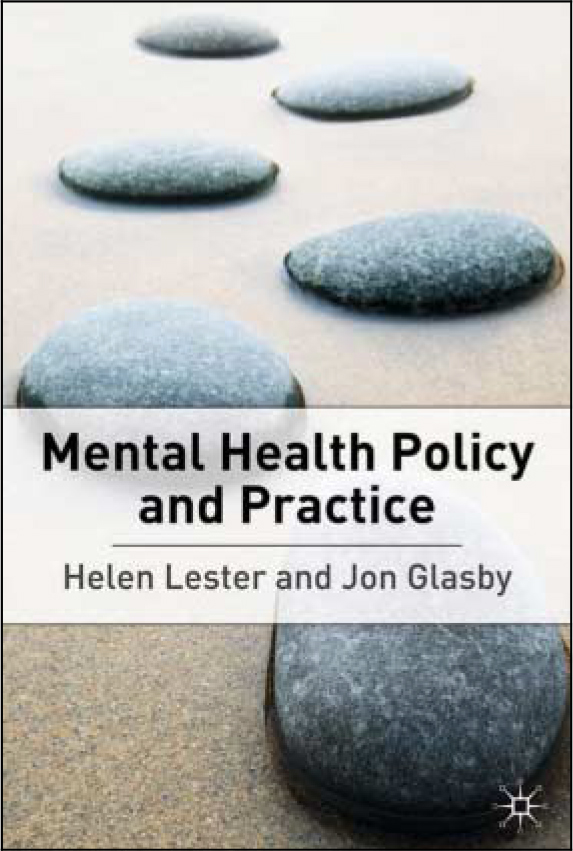
This clearly written book by two academics (one a general practitioner and the other with a social work background) seeks to provide an overview of important developments in mental healthcare. Two introductory chapters set the scene, providing the reader with a somewhat unreliable history of mental healthcare in England and a breathless account of mental health policy over the past 30 years. Four service-related chapters follow, encompassing primary care, community mental health (a whirlwind tour of hospital closure, community mental health teams and the new functional mental health teams), hospital mental health (i.e. acute beds) and forensic mental health services. We are then treated to a quartet of chapters on meta-issues that preoccupy contemporary policy makers: partnership working, user involvement, antidiscriminatory practice and carers.
Every potential reader of this book will find something they did not know. I was completely ignorant of the literature on the pitfalls of partnership working and read this chapter with great interest. Perhaps unsurprisingly given the book's scope there are errors of fact and misinterpretations of the literature. Lord Ashley, when he stated that ‘asylums would effect a cure in seventy cases out of every hundred’, was using an evidence base at least as firm in its day as anything that has come out of North Birmingham in the past decade. Enthusiastic as we are about locking people up in the UK, the prison population has not as yet reached 140 000. To call shell shock ‘post-traumatic stress disorder’ is an anachronism. To aver that those who take a biomedical approach towards mental illness espouse ‘mind–body dualism’ is surely to misunderstand both concepts.
The authors identify three theoretical frameworks through which much of their material is interpreted (the social model of disability, the recovery paradigm and communitarianism) and quote generously and approvingly from a wide range of texts that take what is fashionably termed a critical approach to established practices in mental health.
I predict that the book will sell well, inform many and perhaps mislead a few.



eLetters
No eLetters have been published for this article.